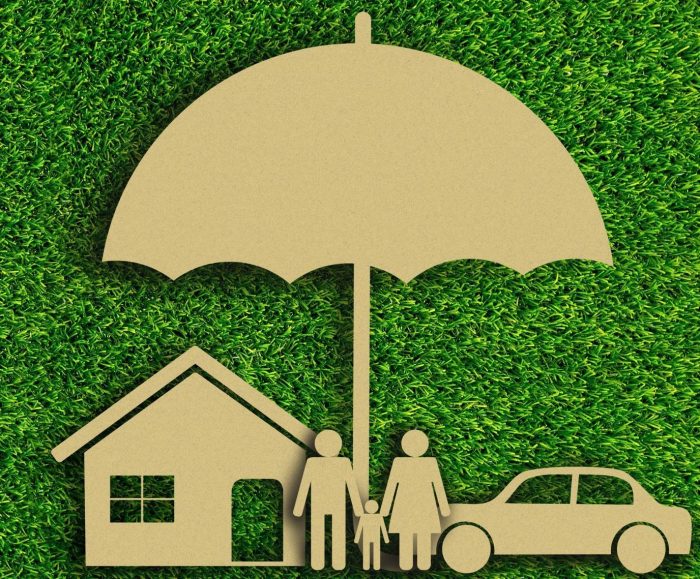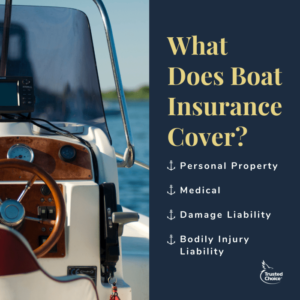
Umbrella insurance for homeowners serves as a crucial safety net, providing an extra layer of protection beyond standard homeowner policies. Imagine hosting a backyard barbecue when an unexpected accident occurs, leading to significant liability claims. This is where umbrella insurance steps in, ensuring you are not left vulnerable to financial ruin.
By understanding the nuances of this type of insurance, homeowners can safeguard their assets against various scenarios that may arise, from accidents on their property to incidents involving guests. With its ability to cover a range of liabilities, it’s an important consideration for any homeowner seeking peace of mind.
Understanding Umbrella Insurance for Homeowners
Umbrella insurance serves as an additional layer of protection for homeowners, extending beyond the limits of standard homeowners insurance. This type of policy is crucial for safeguarding assets against potential liabilities that may arise from unforeseen incidents, ensuring that homeowners are not left vulnerable to costly legal claims.Umbrella insurance is particularly significant as it covers various liability situations that may not be included in standard policies.
For example, if a visitor slips and falls on your property, and the medical bills exceed your homeowners insurance limit, umbrella insurance can cover the excess costs. This added security becomes essential when facing claims that could jeopardize your financial well-being.
Protection from Liability Claims
Understanding the types of claims that umbrella insurance can cover is vital for homeowners. This additional protection often comes into play in several common scenarios:
- Accidents on Property: If a guest suffers an injury while visiting your home, and their medical expenses surpass your homeowners policy limit, umbrella insurance can help cover those costs.
- Dog Bites: In the unfortunate event that your dog bites someone, resulting in a lawsuit, umbrella insurance can cover legal fees and any settlements that might exceed your homeowners policy.
- Personal Liability for Non-Property Incidents: If you are involved in an incident outside your home, such as causing an accident while driving, umbrella insurance can protect your assets against lawsuits stemming from those claims.
- International Incidents: If you travel abroad and face legal claims, such as an accident or injury, umbrella insurance may provide coverage that normal policies do not extend outside your home country.
“Umbrella insurance provides peace of mind, knowing that you have a financial safety net for unexpected liability claims.”
In addition to these scenarios, it’s important to consider potential long-term implications of liability claims on your financial health. Having umbrella insurance can protect your savings, investments, and future earnings from significant legal expenses that could arise from a single incident. The peace of mind that comes with knowing you are adequately covered can be invaluable for any homeowner looking to secure their financial future.
Comparison with Other Types of Insurance

When navigating the world of insurance, understanding how different policies function can be crucial for homeowners. Umbrella insurance is a unique type of coverage that provides additional liability protection beyond standard home and auto policies. To grasp its significance, it’s essential to compare it with other types of insurance, such as pet insurance and travel insurance, along with supplemental insurance.
Comparison with Pet Insurance
Pet insurance is designed to cover veterinary expenses for pets, aiding owners with financial relief during unexpected medical situations. While umbrella insurance focuses on liability protection, pet insurance provides coverage for specific animal-related incidents. Here’s a closer look at how they differ:
- Coverage Scope: Umbrella insurance covers liability claims that could arise from various incidents, including injuries to others on your property. In contrast, pet insurance primarily covers veterinary bills and may include costs associated with accidents or illnesses affecting pets.
- Benefits: The benefit of umbrella insurance is broad, covering legal fees and settlements for various liabilities. Pet insurance, however, is limited to the health and wellness of the pet, providing peace of mind for pet owners concerned about veterinary expenses.
- Policy Limits: Umbrella insurance often offers higher coverage limits, typically starting at $1 million. Pet insurance limits are generally much lower and vary based on the policy chosen, typically ranging from a few thousand to tens of thousands of dollars in coverage.
Differences Between Umbrella Insurance and Supplemental Insurance
Supplemental insurance is intended to add coverage for specific needs, often filling gaps in standard health or life insurance policies. In contrast, umbrella insurance focuses on liability coverage. The following points Artikel the key differences:
- Liability Coverage: Umbrella insurance is dedicated to providing liability protection, covering claims like property damage or bodily injury that exceed the limits of standard policies. Supplemental insurance generally does not cover liabilities but enhances existing coverage for health-related expenses or other specific needs.
- Types of Incidents Covered: Umbrella policies cover a wide array of incidents beyond typical home insurance, while supplemental options are usually specific to health expenses, accidents, or critical illness.
- Integration with Other Policies: Umbrella insurance acts as an overarching policy, while supplemental insurance works in conjunction with existing health or auto policies to add more protection.
Travel Insurance Distinction from Umbrella Insurance
Travel insurance is specifically tailored to offer protection for travelers against unexpected events during their trips, such as trip cancellations, lost luggage, or medical emergencies abroad. Unlike umbrella insurance, travel insurance does not primarily address liability situations. The comparison highlights the following distinctions:
- Purpose: The main purpose of travel insurance is to provide financial coverage for incidents related to travel, whereas umbrella insurance is aimed at safeguarding against liability claims that can arise at home or during everyday activities.
- Scope of Coverage: Travel insurance typically covers expenses incurred due to trip interruptions or emergencies, including medical treatment overseas. Umbrella insurance does not cover these scenarios but offers broader liability coverage applicable to various risks.
- Duration of Coverage: Travel insurance is time-specific, covering only the duration of a trip. Umbrella insurance remains in effect as long as the policy is active and the homeowner continues to meet the requirements.
Understanding these distinctions helps homeowners make informed decisions about the types of insurance they need to effectively protect their assets and manage risks.
Expanding Insurance Knowledge

Understanding the breadth of insurance options available can significantly impact homeowners and their financial security. Homeowners need to grasp not just their homeowners’ insurance policies but also how supplemental types of insurance, like umbrella insurance, play a critical role in providing comprehensive protection. By expanding their insurance knowledge, homeowners can make informed decisions that better shield them from potential liabilities and unforeseen risks.
Vision Insurance and Its Relevance to Homeowners
Vision insurance is often viewed as an ancillary benefit, yet it holds considerable relevance for homeowners, especially those with children or family members prone to vision issues. While it primarily covers eye exams, glasses, and contact lenses, the broader implications of vision health can affect overall well-being and productivity within the household. A well-structured vision insurance plan can lead to cost savings and promote proactive health management.
For instance, regular eye exams can detect early signs of serious health conditions, reducing potential medical expenses in the future.
“Protecting one’s vision is as crucial as safeguarding one’s home.”
Watercraft Insurance and Its Relationship with Umbrella Insurance
Watercraft insurance provides crucial coverage for boats, jet skis, and other personal watercraft. For homeowners who own such vehicles, this insurance complements umbrella insurance by extending liability protection beyond what standard homeowners’ policies might cover. Homeowners should consider the following aspects of watercraft insurance:
Liability Coverage
This includes protection against injuries or damages caused to others while operating the watercraft. Without adequate coverage, homeowners may risk substantial out-of-pocket costs in the event of an accident.
Physical Damage Coverage
This insures the watercraft against physical loss or damage, such as theft, vandalism, or collision.
Personal Property Coverage
This covers personal belongings stored on the watercraft, ensuring that homeowners are not left financially vulnerable if these items are lost or damaged.Integrating watercraft insurance with umbrella insurance creates a more robust safety net, ensuring that even significant claims don’t deplete personal assets.
Understanding Different Insurance Types and Their Interconnections
A comprehensive understanding of various insurance types is essential for homeowners to safeguard their assets effectively. Each type of insurance serves a specific purpose and often works best in conjunction with others, particularly umbrella insurance.Homeowners should be aware of key insurance types that can enhance their protection:
Homeowners Insurance
Primarily protects the home structure and personal property but may have limitations in liability coverage.
Auto Insurance
Protects vehicles and provides liability coverage for accidents. Combining this insurance with umbrella coverage can help protect against hefty claims that exceed standard limits.
Health Insurance
Covers medical expenses but indirectly influences liability by enabling homeowners to manage health-related financial risks, potentially impacting overall financial stability.By recognizing how these insurance types interrelate, homeowners can strategically select policies that not only cover their immediate needs but also provide a more comprehensive shield against unexpected events. The umbrella policy acts as a layer of protection, filling gaps left by other insurance types and ensuring financial security across various aspects of life.
Last Point
In summary, umbrella insurance for homeowners is not just an optional add-on; it’s a vital component of a comprehensive insurance strategy. As we’ve explored, it provides significant protection against unpredictable events and complements other insurance types to create a robust safety net. Homeowners who invest in this coverage equip themselves with the means to handle unexpected challenges with confidence.
FAQ Guide
What exactly does umbrella insurance cover?
Umbrella insurance typically covers liability claims above the limits of your primary insurance policies, such as homeowner’s or auto insurance. It may also cover claims not included in those policies, like false arrest or defamation.
How much umbrella insurance do I need?
The amount of umbrella insurance needed varies based on your assets and potential liabilities. A common recommendation is to have enough coverage to protect your total assets, which might range from $1 million to several million dollars.
Is umbrella insurance expensive?
Generally, umbrella insurance is considered affordable, with premiums often ranging from $150 to $300 annually for $1 million in coverage, depending on various factors like location and risk profile.
Can I get umbrella insurance without having a homeowner’s policy?
Most insurance companies require you to have a primary home or auto insurance policy before you can purchase an umbrella policy, as it acts as an extension of those coverages.
Does umbrella insurance cover all types of liabilities?
No, umbrella insurance does not cover every type of liability. For example, it typically does not cover business-related liabilities or injuries that occur when driving a company vehicle.




